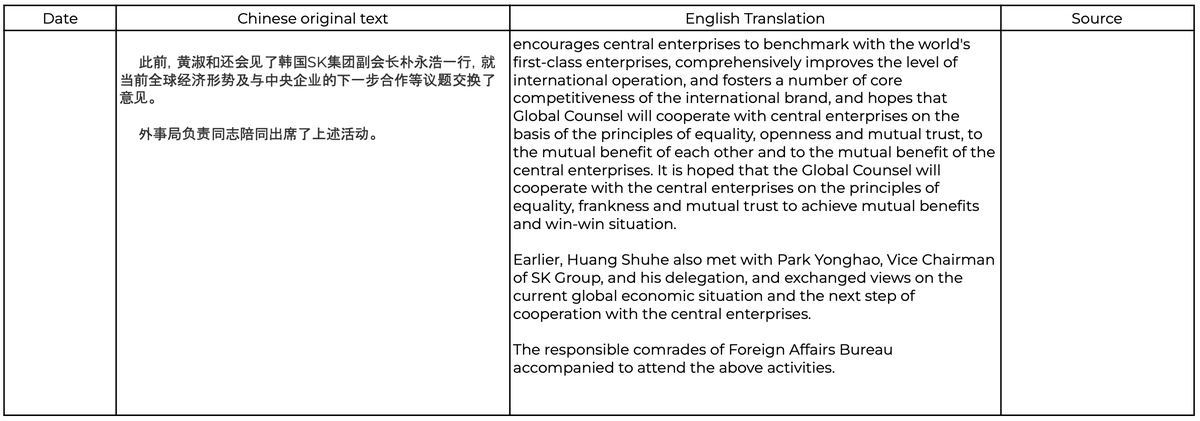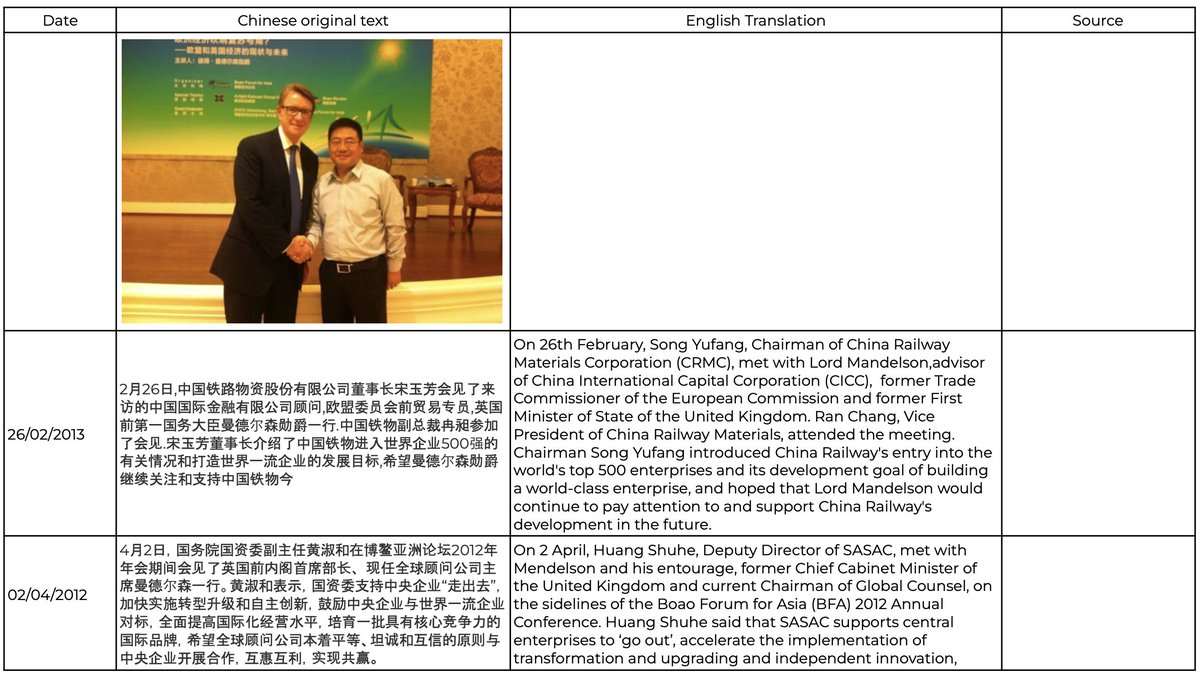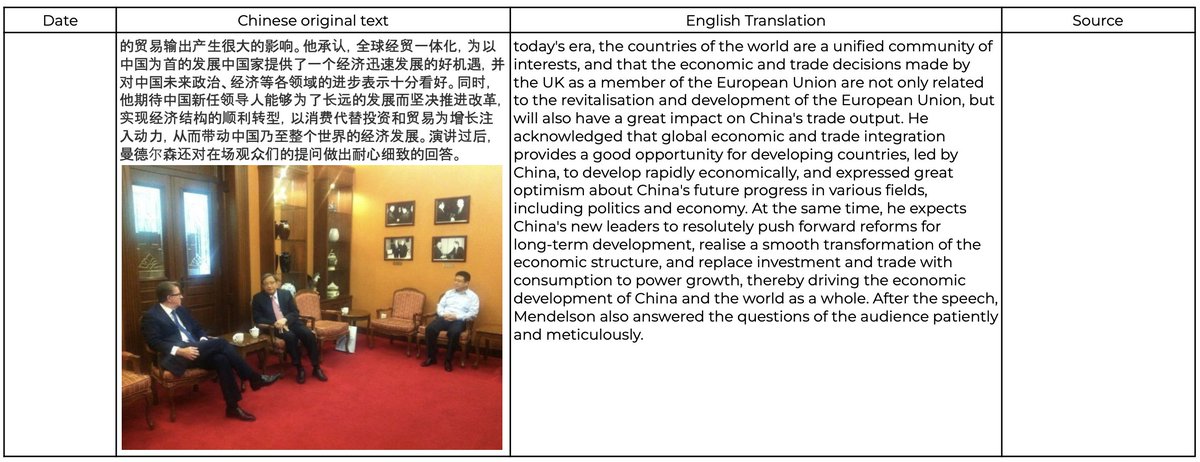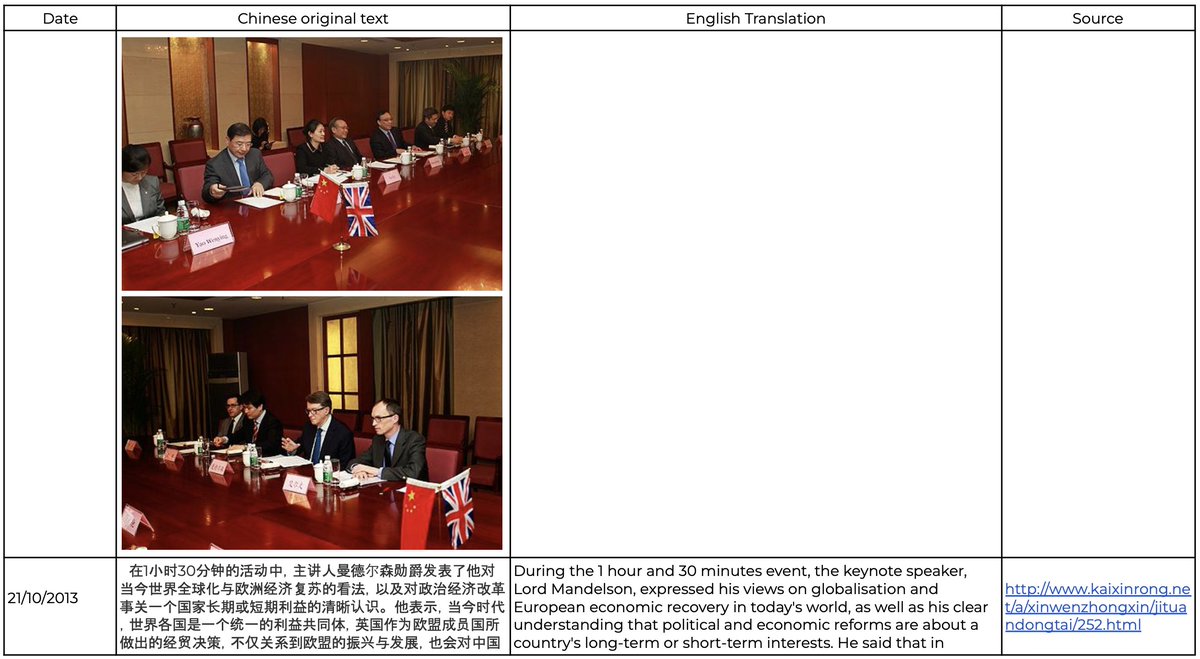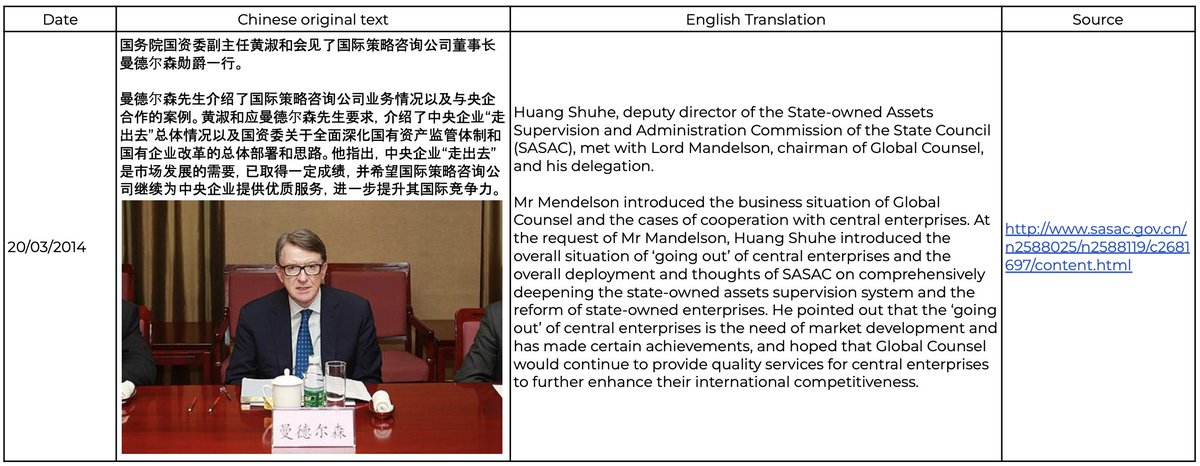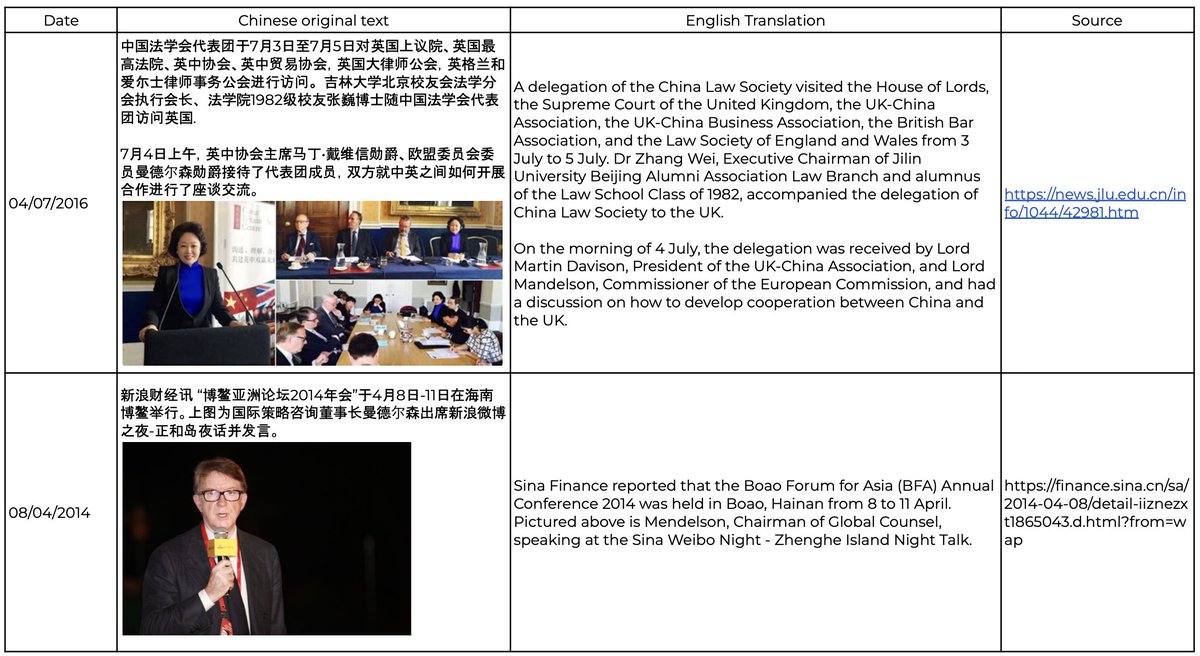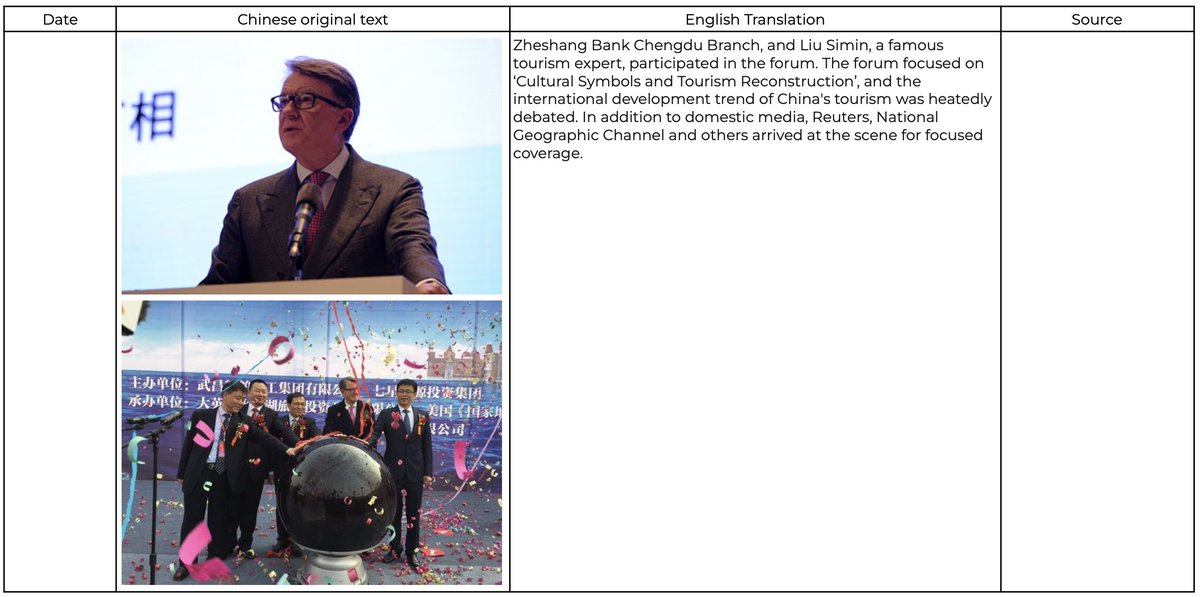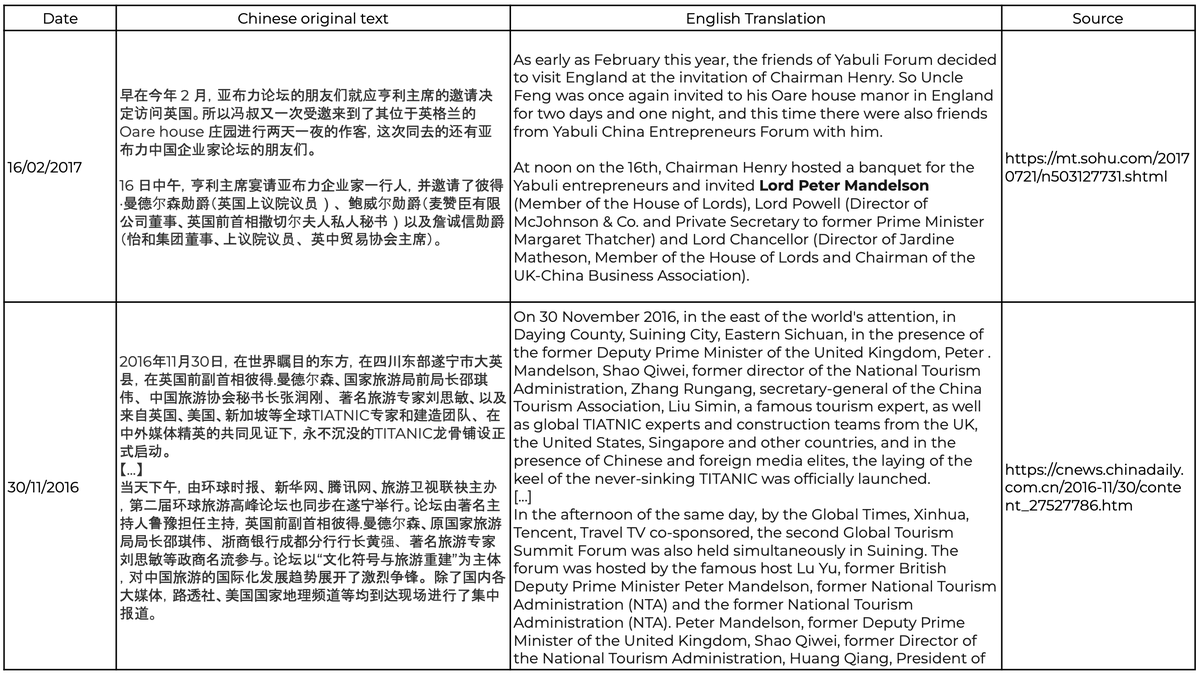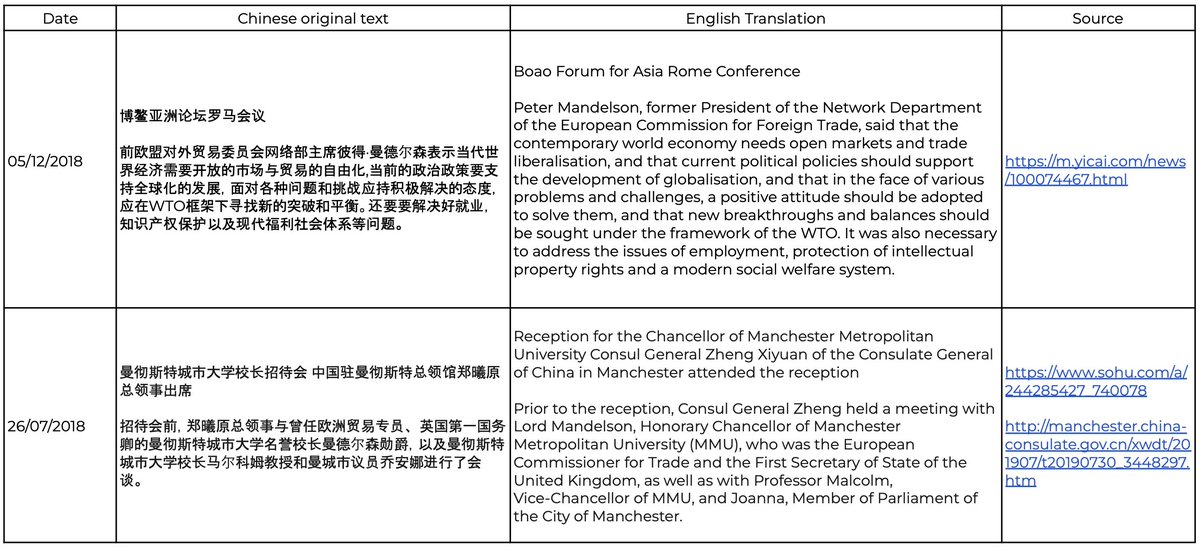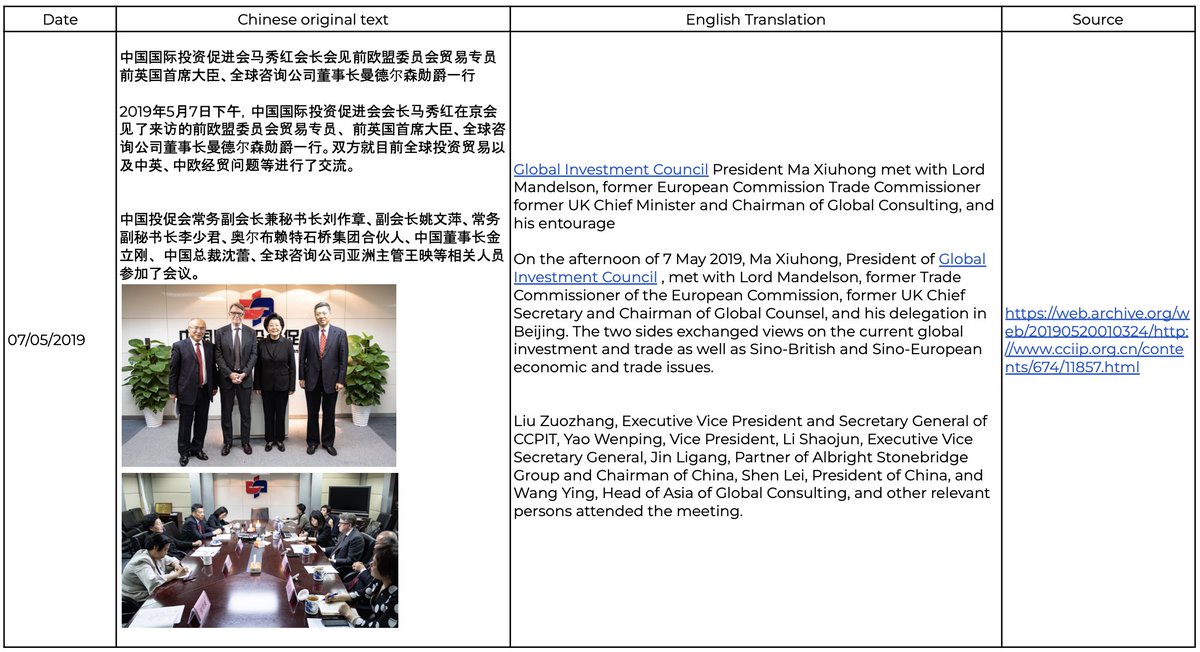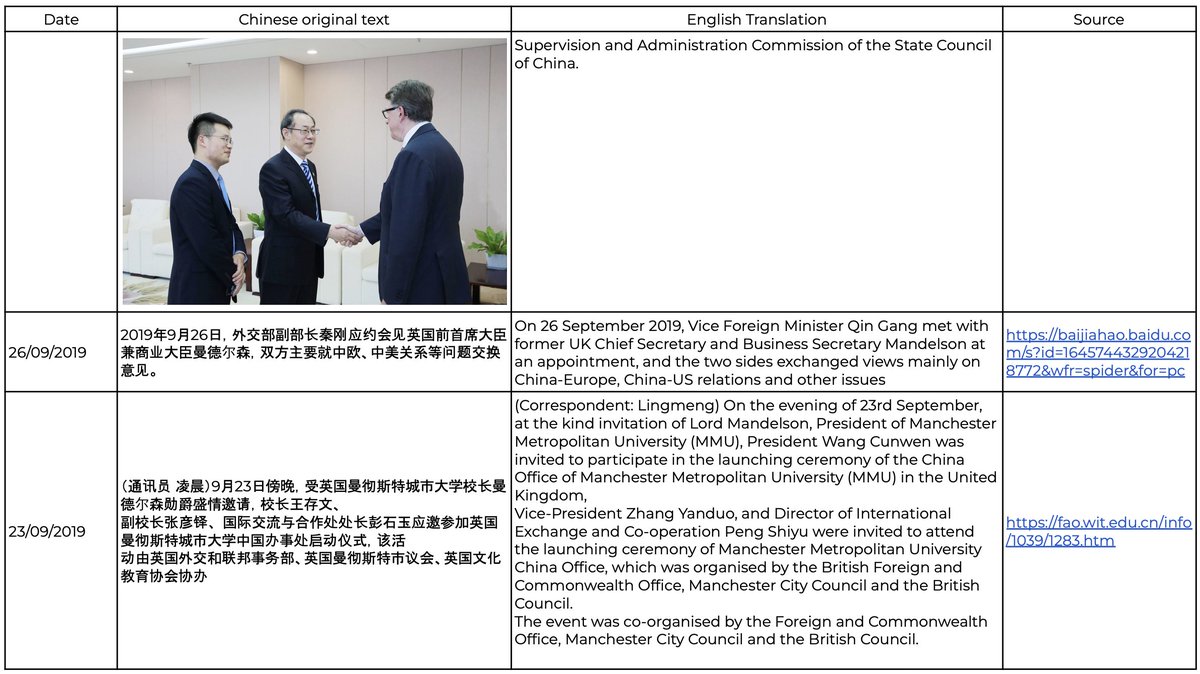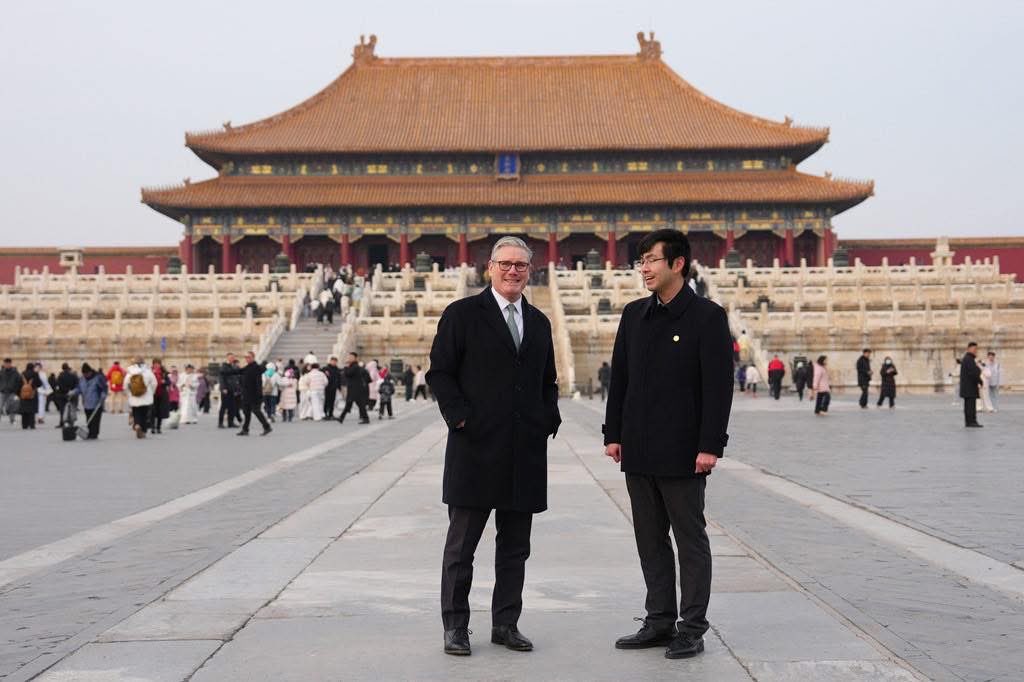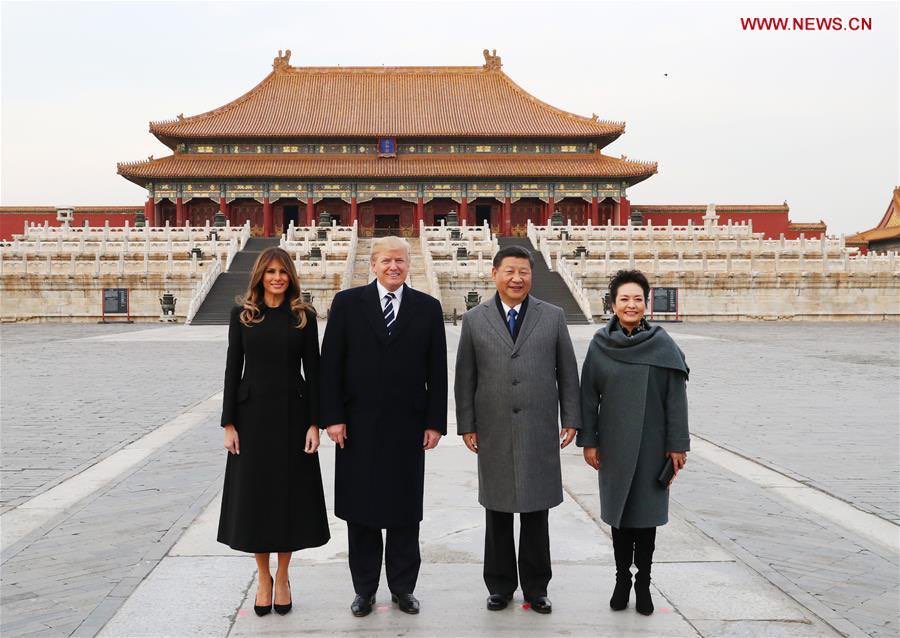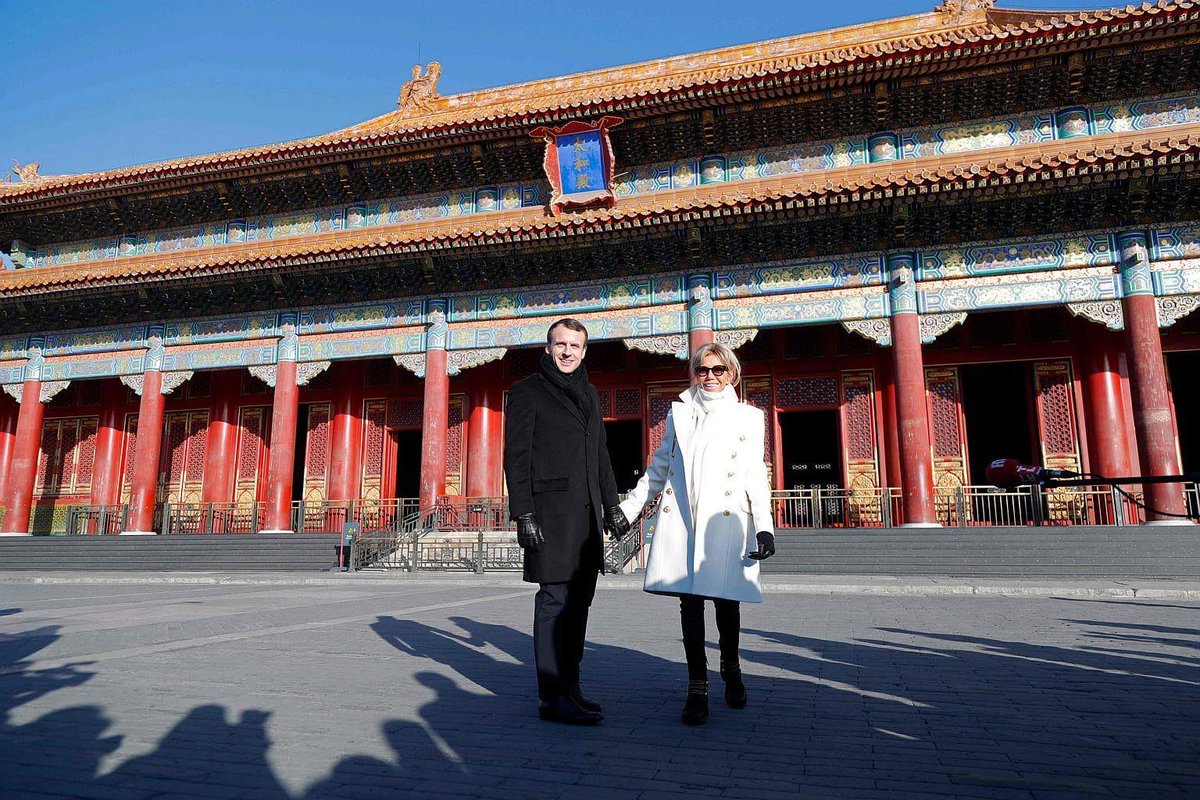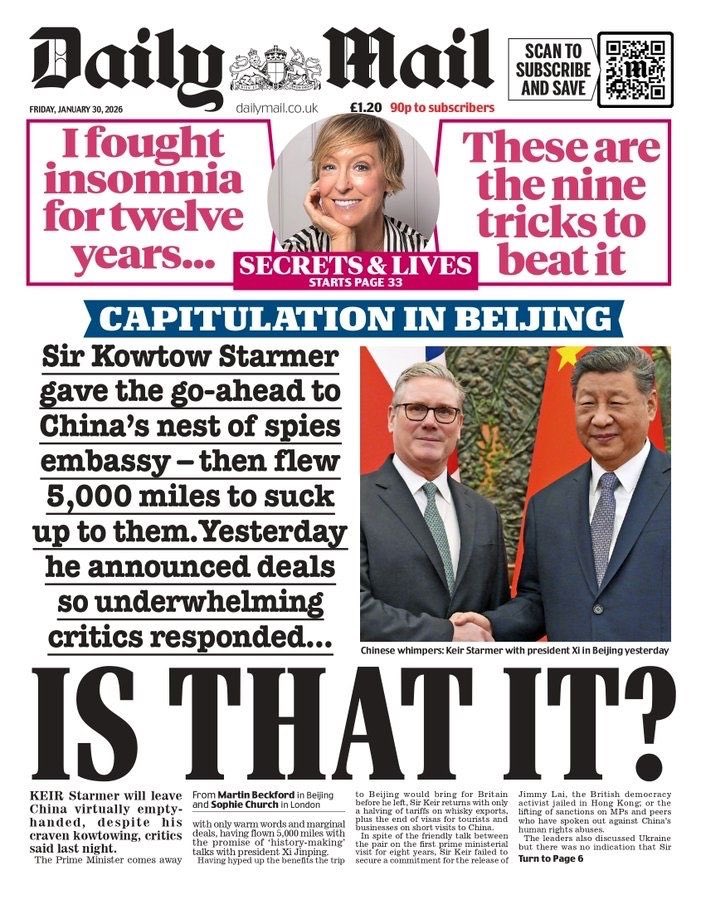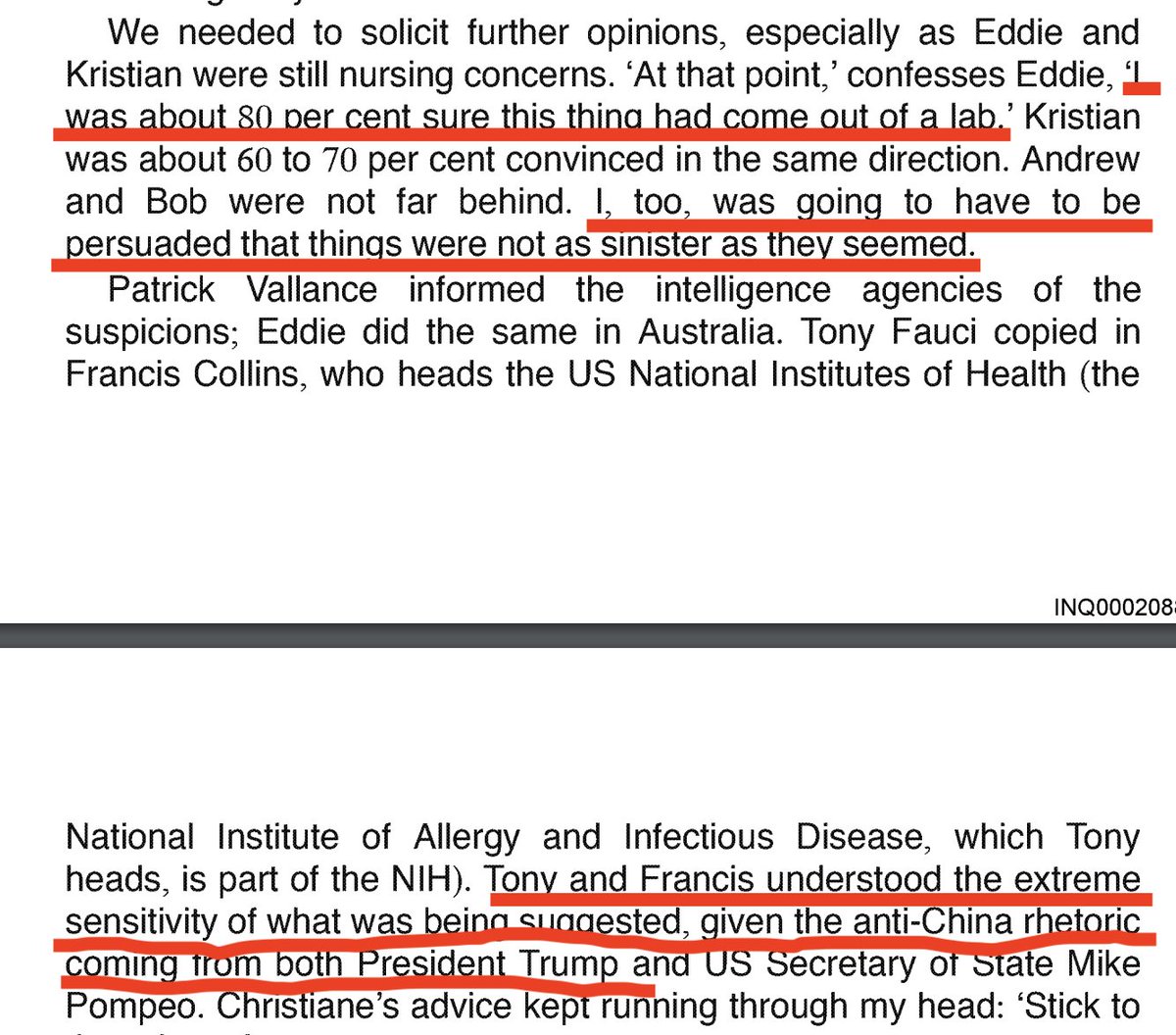Problem with the Integrated Review section on 🇨🇳 isn’t the language (which has much to recommend it).
There’s some nice sounding stuff in there eg:
There’s some nice sounding stuff in there eg:

The problem is that there isn’t much we can elevate to what Robert Kennedy called the “dignity of policy”.
Let’s dig a bit.
Let’s dig a bit.
The IR talks about ‘creation of dependencies’ (an explicit aim of the CCP). In 2020 @dominicraab commissioned Project Defend to address dependency. It was quietly dropped in 2022. Nobody knows why. The IR doesn’t reinstate it, doesn’t even hint towards it.
export.org.uk/news/509100/Pr…
export.org.uk/news/509100/Pr…
There are a few *very very small* announcements made in the China bit of IR2023 (2x China capabilities spend). V welcome, but will cost peanuts and shouldn’t be confused with serious policy change.
For context, we spend £2.2m a week to store useless PPE. mirror.co.uk/news/politics/…
For context, we spend £2.2m a week to store useless PPE. mirror.co.uk/news/politics/…
Meanwhile, the #IR2023 still hasn’t realised that Xi’s CCP blatantly uses Western climate naivety to its advantage and falls straight into the trap.
bloomberg.com/opinion/articl…
bloomberg.com/opinion/articl…

But, wait a minute! It says stuff like PRC impacts “nearly every aspect of national life” and that the CCP is trying to reshape the international order. This is strong language!
Yes, but what substantive change does this strong language indicate?
Yes, but what substantive change does this strong language indicate?
Answer: not much. On Taiwan, we hear that 🇬🇧 is against unilateral change in the status quo, but set out no plan to disincentivise PRC invasion. And there won’t be one.
On dependency, no plan.
On dependency, no plan.
But these things are all forgivable.
The Cardinal sin in the #IR2023 is the “business as usual” signifier buried behind an unconvincing caveat :
The Cardinal sin in the #IR2023 is the “business as usual” signifier buried behind an unconvincing caveat :

This tells Government Departments that they’re to continue to seek and encourage increased bilateral trade and investment (remember the IR’s purpose👇)
This is what I call the ‘feed the beast’ strategy deployed to devastating effect since WTO accession.
This is what I call the ‘feed the beast’ strategy deployed to devastating effect since WTO accession.

Genuinely devastating. Because it is economic strength which enables Xi’s China to behave the way it does. And continuing to trade and invest as if nothing is wrong endorses impunity, while rendering our commitment to rights and rules a laughing stock.
And that’s another massive gap in our China strategy: nothing on economic coercion. Little wonder tbh when the 🇬🇧 is reportedly opposing 🇯🇵 efforts to address it via the G7 on the grounds it might “anger Beijing” dailymail.co.uk/news/article-1…
As to whether or not 🇨🇳 should be called a threat, my answer is to ask a #Uyghur with a family member in a camp. Anyone arguing that Iran presents a more present threat than China shouldn’t be taken seriously. 

All in all #IR2023 is an interesting technocratic exercise in trying to thread the needle between the desires of Beijing and the Tory backbenches. And some baby steps in the right direction. But the scale of the challenge will force review. The sooner the better.
• • •
Missing some Tweet in this thread? You can try to
force a refresh


